Authoritarianism doesn’t show up overnight. It seeps in step by step — through propaganda, censorship, rewriting history, silencing the press, and mixing politics with religion. If you’ve been following American politics recently and feeling like it all seems strangely familiar, that’s because we’ve seen this movie before. Literally.
Movies and documentaries about authoritarianism, fascism, and corruption don’t just entertain us. From historical propaganda like ‘The Triumph of the Will’ to modern social experiments like ‘The Wave’, cinema has long shown how easily ordinary people can be drawn into authoritarian thinking. It often holds up a mirror to society, warning us about the very dangers that are now today’s reality.
From Hitler’s rise in Germany, which I compare to the Trump/Republican Party regime in my guide to authoritarianism in America, to Christian nationalism in the U.S., and dystopian futures that don’t feel so far-fetched anymore, these films give us a lens into what’s happening now.
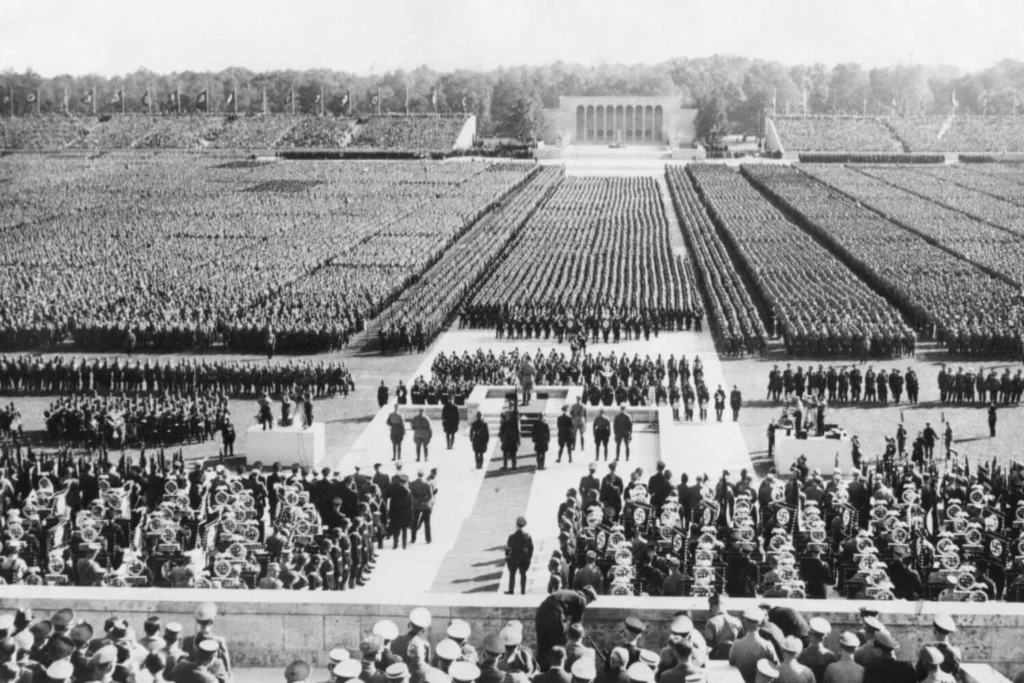
Hitler And Fascism On Screen
Before fascism became a history lesson, it was a movement built on charisma, fear, and relentless propaganda. These films show how ordinary people were drawn into extraordinary evil — and how power, once worshipped, devoured everything in its path. From blind obedience to brave resistance, they capture the psychology, spectacle, and devastation of authoritarian rule — lessons that feel uncomfortably relevant once again.
- The Triumph of the Will (1935) – Nazi propaganda itself. A chilling reminder of how spectacle and media were weaponized. Watch critically, not passively. Directed by Leni Riefenstahl, this film is often studied in film schools as the ultimate example of propaganda and spectacle.
- The Wave (2008, Germany) – A high school teacher’s modern classroom experiment that shows just how quickly fascism can take root in a democracy. It’s based on a real incident in 1967 California, and it’s a stark reminder of how authoritarian movements grow easily when people crave belonging and order.
- Downfall (2004, Germany) – Hitler’s final days, and the blind loyalty that endured even as Germany collapsed. Bruno Ganz’s performance as Hitler earned international acclaim for its chilling realism.
- Conspiracy (2001, HBO) – A reenactment of the Wannsee Conference, where the Holocaust was bureaucratically planned. A portrait of the banality of evil.
- Hitler: A Career (1977, documentary) – Traces Hitler’s rise step by step — the same tactics authoritarian leaders still use today.
- How to Become a Tyrant (Netflix, 2021) – Narrated by Peter Dinklage, this six-part docuseries breaks down the “rulebook” of dictatorship — from controlling the truth and crushing rivals to creating cults of personality. Featuring Hitler, Stalin, Gaddafi, and more, it’s both darkly funny and terrifyingly relevant. Each episode shows how tyrants gain, consolidate, and keep power — lessons that mirror exactly what’s unfolding in modern America under authoritarian leaders.
- The Rise of the Nazi Party (2013, documentary) – Includes archive footage, interviews, and reconstructions to tell the story of how, after WWI, Hitler and his small band of co-conspirators created an illusion of justice and legality, while behind the scenes they subverted democracy, and planned a monstrous secret conspiracy based on warped ideology and phony science. A gangster regime of violence, suppression, and propaganda to groom German citizens into being complicit in the worst crimes in history.
- WWII In Color (2009, Tubi) – If you are not a fan of black and white documentaries, this is a good option to learn about the Second World War in detail. In a 13-part series, they’ve used colorization techniques and graphics to turn old black and white footage into color.
- World War II: From the Frontlines (2023, Netflix) – Restored archival footage and first-person accounts put you on every front of the war, making the global stakes visceral and human in a way textbooks can’t.
Mini Film Guide: Understanding Tyranny
If you want to understand how dictators rise — and how democracies fall — these films and documentaries walk you step by step through the anatomy of tyranny. They reveal the patterns that repeat: charisma weaponized into control, obedience rewarded, dissent crushed, and propaganda turned into policy.
Watch first:
- How to Become a Tyrant (2021) — The modern “playbook” of dictatorship, from personality cults to propaganda.
- The Triumph of the Will (1935) — The original propaganda machine, built to glorify Hitler and control the masses.
- The Wave (2008) — A chilling American classroom experiment proving how fast fascism can spread in a democracy.
- Downfall (2004) — Inside the bunker as loyalty outlives truth.
- Jojo Rabbit (2019) — Indoctrination unmasked through innocence.
- Schindler’s List (1993) — Humanity’s light against institutional darkness.
- The Man in the High Castle (2015–2019) — What if fascism had actually won? A haunting look at life under totalitarian rule.
Each one shows that tyranny doesn’t begin with tanks — it begins with apathy, fear, and the belief that “it could never happen here.” Each of these films is a mirror — not of the past, but of what happens when we stop paying attention.
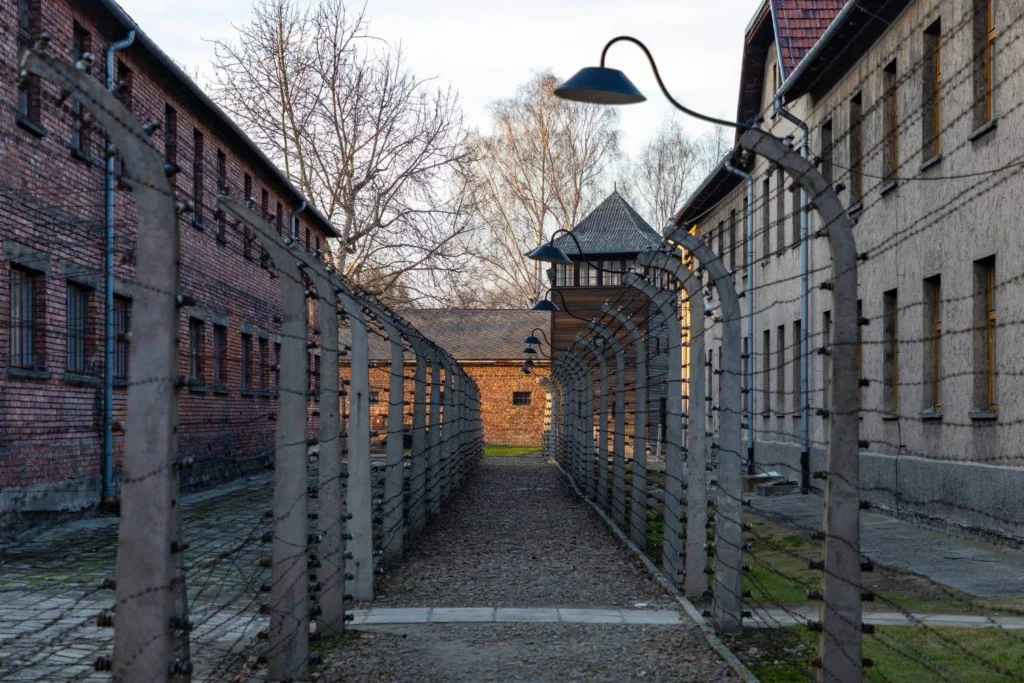
Holocaust Movies
When fascism reaches its extreme, it manifests as genocide. These films show how fascism fueled genocide. Decades later, films like ‘The Wave’ echo those same warning signs — showing how the roots of fascism can sprout again in classrooms, communities, and nations that think “it can’t happen here”. They’re stark reminders of why remembering history matters in today’s fights against authoritarianism – especially when the Trump/Republican Party regime keeps mirroring Hitler’s playbook.
- Schindler’s List (1993) – A visceral look at industrialized genocide and the moral courage of resistance. This movie won seven Academy Awards, including Best Picture and Best Director for Steven Spielberg.
- Shoah (1985, documentary) – Nine-plus hours of survivor, perpetrator, and bystander testimony. Exhaustive and devastating. This landmark documentary is considered one of the most important works on Holocaust testimony.
- Night and Fog (1956) – Short, unflinching, and vital. A primer on how extermination was normalized.
- Judgment at Nuremberg (1961) – Shows how courts were captured by ideology, and the painful process of restoring justice. It won two Oscars, including Best Actor for Maximilian Schell
- The Pianist (2002) – How terror seeps into daily life, and the endurance of survival.
- Come and See (1985) – Brutal portrayal of Nazi occupation in Belarus, seen through a child’s eyes.
- Ordinary Men: The Forgotten Holocaust (Netflix) – A chilling documentary exploring how regular German men — not just SS officers — became perpetrators of genocide. It shows how ordinary people can commit extraordinary evil when ideology, conformity, and obedience replace conscience.
- Europa Europa (1990) – Identity and survival under fanaticism and lies.
- Denial (2016) – The trial that proved Holocaust denial is not “just another opinion.” A warning for today’s disinformation wars.
- Operation Finale (2018) – The hunt for Eichmann, showing why truth matters even decades later.
- Escape from Germany (2023) – Based on the true story of 85 LDS missionaries who fled Nazi Germany in 1939, just before the outbreak of war. It’s a tense, little-known story about faith, foresight, and the moral courage to escape before the darkness closed in — a reminder that recognizing danger early can mean survival.
- The Counterfeiters (2007) – How financial crime fueled Nazi power — echoes of authoritarian regimes laundering money today.
- Surviving Hitler’s Mad Doctors (2022 documentary) – Between 1939 and 1945, there were at least 70 medical projects conducted in the Concentration camps. Some of them were the most insane form of eugenics that the World has ever seen.
Mini Film Guide: The Cost of Silence — Why Humanity Must Always Be Antifascist
If you only have time for a few films, these show exactly what happens when fascism goes unchecked — when obedience replaces conscience, and when ordinary people stay silent until it’s too late. They reveal the real-world consequences of authoritarianism: dehumanization, moral collapse, and genocide.
Watch first:
- Schindler’s List (1993) — Moral courage in the face of industrialized evil.
- Shoah (1985) — The definitive record of testimony — what happens when truth itself must survive.
- Come and See (1985) — The psychological cost of war and indoctrination seen through a child’s eyes.
- Ordinary Men: The Forgotten Holocaust (2024) — How regular people became perpetrators.
- Denial (2016) — Why truth and history still need defenders.
Each of these films shows the same truth: fascism doesn’t begin with death camps — it begins with silence, propaganda, and obedience. They’re not just history lessons — they’re warnings. They remind us that the time to act isn’t when the threat is obvious, but when it’s still deniable. That the moment to fight back — or to get out while you still can — is always sooner than you think.

Fighting Back Against Hitler During WWII: How Democracies Survived
It’s easy to feel overwhelmed by authoritarian creep, especially when fascism is on your doorstep, threatening not just every freedom that you have but your life itself. But history gives us countless stories of resilience, bravery, and ingenuity. These anti-authoritarian movies remind us that democracies don’t crumble inevitably; ordinary people fight back, stand up, and outthink terror. Watch how military and everyday people fought against a tyrant with courage, strength, wit, creativity, and strategy.
Films About D-Day And The Invasion of Europe
When the Allies stormed the beaches of Normandy, it wasn’t just a battle — it was the turning point of history. These World War II films capture the chaos, courage, and sacrifice of D-Day, from the soldiers on the sand to the commanders orchestrating the impossible. They remind us how democracy was fought for inch by inch, through strategy, solidarity, and sheer human will.
- The Longest Day (1962) – A sweeping, all-star retelling of D-Day from multiple perspectives. Still one of the most detailed portrayals of the invasion. Starring John Wayne, Richard Burton, and Sean Connery, it is still one of the most ambitious war films ever made.
- Saving Private Ryan (1998) – While fictional, its opening 30 minutes are the most visceral D-Day landing sequence ever filmed. A reminder of the human cost of fighting authoritarianism.
- Overlord (1975, UK) – Set during WWII, it tells the story of a young soldier from his induction through to his participation in Operation Overlord and the D-Day landings. It’s a lesser-known black and white British film that blends archival footage into the film.
- Ike: Countdown to D-Day (2004) – Starring Tom Selleck as Eisenhower, it shows the planning, diplomacy, and tough calls behind Operation Overlord.

Films About The Battle Of Britain And The Air Campaign
The skies over Britain became a symbol of defiance — ordinary citizens as well as soldiers and pilots – took on overwhelming odds to defend freedom. These films show the intensity of aerial warfare, the bravery of the RAF with the British people alongside them, and the weight of decisions made in smoke-filled rooms and open skies alike. They’re stories of endurance, creativity, loss, and a nation refusing to surrender.
- The World At War, Episode 4: Alone, (May 1940 – May 1941) – This is one episode of a really comprehensive documentary series that covers from 1933 through to May 1945 when Hitler’s reign was finally over. Full of archived footage and commentary from Veterans and entertaining narrators. My favorite part starts at about 7.30 minutes in (if you like British humor, you might enjoy it too).
- The World At War Episode 7 HD – On Our Way: U.S.A. (1939–1942) – This episode focuses on America and how it joined the war against Hitler. Full of archived footage and commentary from U.S. veterans.
- The Battle of Britain (1969) – Epic portrayal of how the RAF, against the odds, defended Britain in 1940. A classic “few against many” story.
- Dunkirk (2017) – Focuses on the evacuation, but shows the ingenuity and bravery of ordinary people alongside the military. Directed by Christopher Nolan, Dunkirk won three Oscars and received eight nominations.
- Darkest Hour (2017) – Gary Oldman’s Churchill, dramatizing how rhetoric and morale kept Britain from surrender.

Films About British Ingenuity And Deception
Behind every battlefront, there was another kind of war — one fought with intelligence, creativity, and quiet cunning. These Allied resistance movies celebrate the ingenious operations and codebreakers who turned deception into a weapon. They show that victory wasn’t just about strength — it was about outthinking tyranny, one clever plan at a time.
- The Man Who Never Was (1956) – A true story about British intelligence tricking the Nazis with a corpse carrying fake invasion plans. As the British prepare to invade Sicily during World War II, they deceive Germany into believing that their target is Greece. Brilliant wartime deception. It’s the true story of ‘Operation Mincemeat’
- Operation Mincemeat (2021) – Set in 1943, starring Colin Firth, ‘Operation Mincemeat’ retells the daring British disinformation strategy of two British officers who tricked the Nazi’s. It’s a testament to courage, imagination, and sheer determination that influenced the course of WWII.
- The Imitation Game (2014) –Based on the true story of Alan Turing, a British mathematician who played a crucial role in cracking the Enigma machine during WWII. It’s proof that brains, not just brawn, win wars. The film, which won an Academy Award for Best Adapted Screenplay, highlights Turing’s pivotal role in shortening the war.
- A Bridge Too Far (1977) – Set in 1944, starring Sean Connery and Michael Caine, it tells the story of the ambitious but flawed Operation Market Garden. Even when plans fail, it shows the scale of Allied resistance.
- The Monuments Men (2014) – The true story of a group of Allied art historians, curators, and soldiers tasked with saving Europe’s cultural treasures from Nazi looting. It shows another side of war, not just fighting tyranny on the battlefield, but preserving humanity’s history and identity from destruction. It’s a moving reminder that the defense of culture is also the defense of freedom.
Mini Film Guide: World War II, Courage & Defiance
Short on time? Start with these.
These films capture the full scope of WWII — from D-Day’s chaos to secret operations, from moral defiance in POW camps to ordinary people outsmarting tyranny. They show how freedom was fought for on beaches, in bunkers, and behind enemy lines.Watch first:
- – Saving Private Ryan (1998) — The raw cost of freedom on D-Day’s beaches.
- – The Imitation Game (2014) — How intellect and codebreaking turned the tide of war.
- – The Battle of Britain (1969) — Defiance in the skies that saved a nation.
- – The Great Escape (1963) — Resistance, courage, and the unbreakable human spirit.
- – Proud (2004) — The untold story of Black American sailors fighting two battles — one abroad, one at home.
Each film is a reminder that democracy survives not by accident, but because ordinary people risk everything to defend it – and many lose their lives to save it.

Films About American Pilots, POWs, and Survival Behind Enemy Lines
Beyond Europe’s front lines, the war tested ordinary soldiers and airmen in extraordinary ways. These stories of American pilots and POWs capture the resilience, defiance, and quiet heroism of those who fought — not just against fascism, but against the loss of humanity itself. They show how courage, ingenuity, and solidarity thrived even in captivity, and how moral strength became its own act of rebellion.
- Twelve O’Clock High (1949) – A gripping look at American bomber pilots in WWII and the psychological toll of leadership under extreme pressure. It’s not just a war film — it’s a study of loyalty, duty, and the human breaking point under authoritarian command.
- Memphis Belle (1990) – Based on the true story of the final mission of an American B-17 crew. Tense, emotional, and beautifully acted, it captures the mix of fear, courage, and camaraderie that defined the air war against Nazi Germany.
- The Great Escape (1963) – Based on the true story of Allied POWs who plotted a daring breakout from a German prison camp. A timeless tale of ingenuity, courage, and defiance — a reminder that the human spirit can’t be contained by fences or fascism.
- Stalag 17 (1953) – A sharp, often darkly funny look at life inside a Nazi POW camp. It explores suspicion, manipulation, and survival — themes that mirror how authoritarian regimes erode trust and weaponize fear.
- Bridge on the River Kwai (1957) – British officers, captured by the Japanese, are ordered to build a bridge for their captors. A psychological masterpiece about pride, obedience, and how moral duty can be twisted into complicity under authoritarian systems.
- Proud (2004) – The true story of the USS Mason, one of the first U.S. Navy ships with an all-Black crew during WWII. This film shines a long-overdue light on how these sailors fought both fascism abroad and racism at home. It’s a story of dignity, patriotism, and courage that broadens the picture of who defended democracy and freedom during the war.
- Unbroken (2014) – The true story of Louis Zamperini, an Olympic runner turned airman who survives a crash, weeks adrift at sea, and brutal imprisonment in a Japanese POW camp. It’s a testament to human endurance, forgiveness, and the strength to stay defiant even in chains.
- Empire of the Sun (1987) – Directed by Steven Spielberg, this coming-of-age story follows a young British boy interned in a Japanese camp after being separated from his parents. Both heartbreaking and hopeful, it shows how innocence and imagination survive amid authoritarian cruelty.
Together, all these films about Hitler and WWII form a cinematic map of how fascism rises, how democracies resist, and why remembering — and retelling — these stories still matters.

Films And Documentaries That Explain Or Contextualize Antifa
Forget the headlines — “Antifa” isn’t a secret organization or domestic terror group. It’s short for antifascist — the belief that when fascism rises, silence isn’t an option. While Trump and Republicans have weaponized the word to smear anyone who opposes their agenda, antifascism has, since the 1920s, simply meant standing up to tyranny.
It’s always been a global movement of ordinary people resisting authoritarian power. These films and documentaries restore that truth, showing what real antifascism looks like — courage, solidarity, and collective resistance. From the street fighters of the 1930s to today’s activists confronting hate worldwide, they remind us that opposing fascism has always been the right side of history — and that every democracy depends on it.
Early Antifascist Roots (1920s–1940s)
These show where the antifascist movement began — as ordinary people resisting fascism long before WWII.
- Don’t Be a Sucker (1943, US War Department) – This is literally an American Antifa film: the U.S. government teaching citizens how to spot and resist fascist rhetoric. It warns Americans about scapegoating and authoritarian rhetoric – the exact language that echoes in Trump, Steven Miller, and the Republican Party’s talking points. It’s cheesy, but the message is timeless: democracy collapses when citizens turn on each other. Watching it today is both eerie and urgent — a reminder from history not to fall for the same lies again, while also proving that Antifa has never been a terrorist organization or enemy of the United States. Its warning is just as urgent today — that when hate speech is normalized, democracy itself is under attack.
- Rome, Open City (1945, Italy) – Roberto Rossellini’s neorealist classic about underground resistance to Mussolini and Nazi occupation. It’s raw, brave, and the truest early depiction of antifascist struggle.
- The Great Dictator (1940) – Charlie Chaplin’s satire mocked Hitler when almost no one else dared. The final speech is pure antifascism — humanity versus hate.
- The Battle of Algiers (1966) – Not about Europe, but it became a key study in resistance movements against oppression. Still used in military ethics courses — and banned in dictatorships.
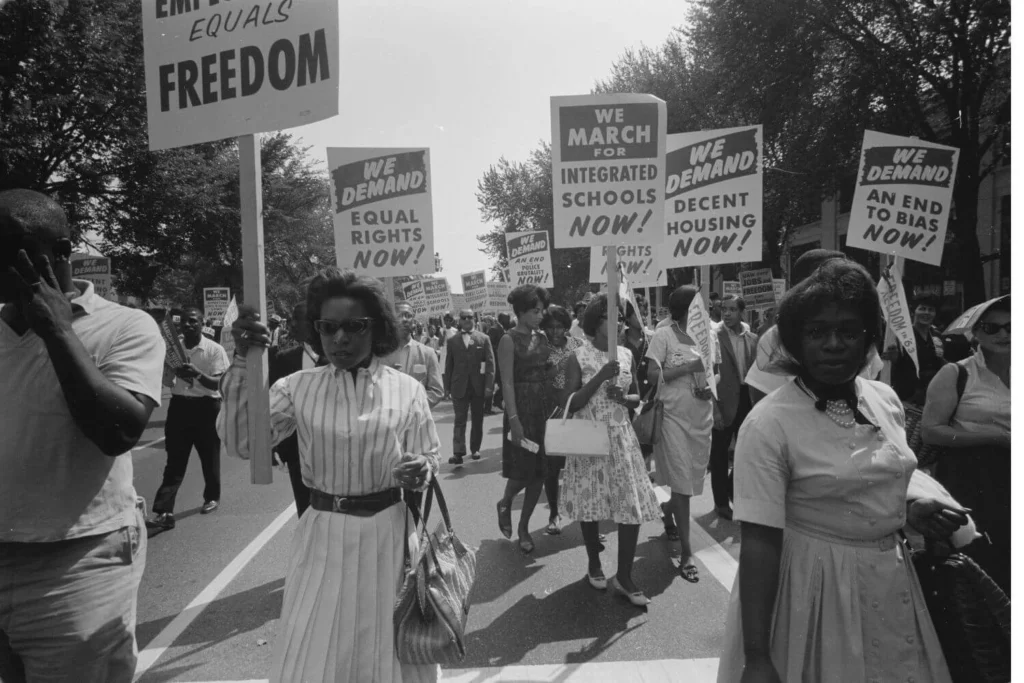
Post-War Antifascism And Neo-Nazism (1960s–1990s)
Films that show how antifascist action continued after 1945, when fascism went underground or was rebranded.
- American History X (1998) – Not explicitly “Antifa,” but the clearest look at deradicalization and how hate movements recruit.
- Skinheads USA: Soldiers of the Race War (1993, HBO Documentary) – Disturbing but essential; it documents the neo-Nazi resurgence and the community organizing that opposed it.
- Punk in London (1977) / Punk: Attitude (2005) – Capture the birth of the punk-Antifa crossover — music, protest, and anti-racist street movements (like Rock Against Racism and Anti-Nazi League).
Modern Antifa Vs Far-Right Extremism (2000s–Present)
These explain how Antifa evolved into a very loose network of decentralized, anti-authoritarian activists responding to far-right violence all over the world.
- The Antifascists (2017, Sweden/Greece) – The only real documentary about Antifa itself. It follows antifascist groups across Europe and the U.S., showing their organizing, philosophy, and direct-action tactics.
- Alt-Right: Age of Rage (2018, Netflix) – Tracks both the U.S. far right and the Antifa activists confronting them. A solid visual primer on what both sides represent.
- Welcome to Leith (2015) – True story of Antifa and townspeople uniting to stop white supremacists from taking over a small North Dakota town.
- No Gods, No Masters: A History of Anarchism (2016, ARTE France) – Excellent context on the political roots of antifascism within broader anti-authoritarian and anti-capitalist movements.
U.S. Civil Rights And Antifa Connections
Antifascism (Antifa) isn’t just a foreign, European ideal; it is deeply American.
- The Murder of Fred Hampton (1971) – Black Panther leader Fred Hampton’s story; his “Rainbow Coalition” united anti-racist, working-class, and antifascist movements before his assassination by the FBI.
- The Black Power Mixtape (2011) – Shows how Black liberation movements were inherently antifascist — fighting systemic oppression, surveillance, and state violence.
- 13th (2016) – Ava DuVernay’s masterpiece showing how systemic racism evolved after slavery — effectively explaining why antifascism still matters in the U.S. context.
- The U.S. vs. John Lennon (2006) – Shows how dissent was criminalized in the Nixon era, linking peace activism to broader antifascist traditions.
- How to Survive a Plague (2012) – About ACT UP and AIDS activism — not Antifa per se, but antifascist in spirit: direct action, civil disobedience, and truth against indifference.
Mini Film Guide: Understanding Antifascism
Short on time? Start here.
These films and documentaries trace antifascism’s true history — from the original 1920s resistance movements to today’s grassroots fight against hate. They reveal what “Antifa” actually means: ordinary people standing up to fascism, authoritarianism, and systemic injustice.Watch first:
- Don’t Be a Sucker (1943) — The U.S. War Department’s original anti-fascist film, warning Americans not to fall for hate and scapegoating.
- Rome, Open City (1945) — Italian partisans fighting Nazi occupation — the birthplace of organized antifascism.
- The Antifascists (2017) — The most direct look at modern Antifa movements across Europe and the U.S., showing their motives, tactics, and real-world context.
- Alt-Right: Age of Rage (2018) — Contrasts modern fascist movements with Antifa activists confronting them head-on.
- 13th (2016) — Shows how systemic racism evolved — and why antifascism isn’t radical, it’s necessary.
- Welcome to Leith (2015) — A small town’s real fight against a white supremacist takeover — everyday antifascism in action.
Each of these films proves that antifascism isn’t chaos, violence, or extremist terrorism — it’s the complete opposite. It’s community defense. It’s about trying to keep everyone safe and opposing dangerous regimes. It’s not about violence, but about refusing to let hate take root. Watch them, learn from them, and you’ll see what “being antifascist” really means: protecting freedom, equality, and truth from those who would destroy them.

Documentaries About Ukraine’s Fight For Democracy
The fight against fascism didn’t end in 1945. It just changed shape. Today, it’s playing out in real time in Ukraine, where a democratic nation is resisting authoritarian conquest yet again. If you want proof that authoritarianism can be resisted today, look to the Ukrainians. These recent documentaries show ordinary people facing down one of the most brutal regimes of our time — and refusing to surrender.
- Winter on Fire: Ukraine’s Fight for Freedom (2015) – The story of the Euromaidan protests, where peaceful demonstrations transformed into a nationwide revolution against corruption and authoritarian control. A reminder that mass movements can topple regimes. It premiered at the Venice Film Festival and was nominated for an Academy Award for Best Documentary Feature.
- Breaking Point: The War for Democracy in Ukraine (2018) – Follows everyday Ukrainians who left behind ordinary lives to defend democracy from Russian aggression. Shows how courage spreads through communities.
- Freedom on Fire: Ukraine’s Fight for Freedom (2022) – A harrowing but inspiring account of war as it unfolds, reminding us that resistance is both human and collective. This is the follow-up to Winter on Fire, which also premiered at the Venice Film Festival and captures the war’s human cost.
- 2000 Meters to Andriivka (2025) – A front-line story of soldiers reclaiming their land, showing how resilience and strategy keep hope alive.
- Porcelain War (2024) – Through the eyes of artists on the frontlines, this film proves that resistance isn’t just physical — it’s cultural and creative too.
Together, these films don’t just warn — they inspire. Just as films like ‘The Wave’ and ‘Don’t Be a Sucker’ warn us how fascism begins, these Ukraine documentaries remind us that resistance — from students to citizens — is how it ends.
They show us that authoritarianism can be challenged, democracy is worth fighting for, and hope is never lost as long as people are willing to resist.

White Supremacy And Christian Nationalism Movies
While Ukrainians are fighting fascism abroad, Americans face their own version of it at home — in the rise of Christian nationalism, white supremacy, and political violence cloaked in patriotism. For decades, America’s biggest domestic threats have been white supremacy and Christian Nationalism. They are responsible for a vast majority of acts of domestic terrorism and political violence than any other group in the Country. Trump’s DOJ has removed one of the key reports that states this clearly, so that they can push a false narrative that it’s the far left killing people.
These films give crucial insight into the mindset behind today’s movement — one that I cover in detail in my Christian Nationalism in America post. Watch them to get an inside look at the extremism of white supremacists and Christian Nationalists, and why they are so dangerous.
Movies About White Supremacy And Racism
- Malcolm X (1992) – A great movie about the evolution of a movement and a man, and the cost of speaking truth to power under constant state surveillance.
- A Time to Kill (1996) – Based on John Grisham’s novel, this movie is a powerful story that explores racism in the courtroom, the extreme violence of white supremacy, and how justice often bends under prejudice.
- American History X (1998) – This impactful movie shows how white-power radicalization spreads, and the difficult path out of extremism. This is a MUST-WATCH because one of Trump’s first speeches came from this movie.
- BlacKkKlansman (2018) – Spike Lee connects white supremacy directly to today’s MAGA rallies and hate groups.
- Mississippi Burning (1988) – Based on true events, showing systemic racism and law enforcement corruption. Still relevant with modern hate crimes rising.
- Till (2022) – The story of Emmett Till’s lynching and a mother’s refusal to let the country look away.
- Higher Learning (1995) – Campus recruitment into extremist movements — weaponized grievance that still resonates.
- Skin (2018) – A story of leaving extremism, showing both hope and the scars left behind.
- The Birth of a Nation (1915) – Propaganda that glorified the Klan. Watch critically as an early case of cinematic disinformation
- The Purge (2013 onward) – A dystopian “holiday” of legalized violence. Once fiction, now uncomfortably close to GOP rhetoric about “real Americans.”
Christian Nationalism Movies
- The Order (2024) – A tense thriller based on the real 1980s white-supremacist terror group Brüder Schweigen, offering a warning about accelerationist violence today. This movie is extremely relevant, and it will help you to understand the Seven Mountains Mandate and the Republican Party’s Christian Nationalist agenda.
- Bad Faith: Christian Nationalism’s Unholy War on Democracy (2024) – This new documentary connects the dots between religious extremism, political control, and the cult-like devotion driving America’s authoritarian movement. It’s the modern face of theocratic fascism, filmed in real time.
- The Family (Netflix) – A crucial watch that bridges religion, politics, and cult dynamics. It exposes the secretive Christian nationalist network in Washington D.C. that has influenced U.S. power for decades — proof that not all cults live on communes. Some walk the halls of government.
- The Handmaid’s Tale (2017–present) – Fictional series, but its dystopian world closely parallels Project 2025 and Christian Nationalist goals today. It is what America could become if Project 2025 and Project Esther are completely implemented successfully. Based on Margaret Atwood’s novel, it has won 15 Primetime Emmy Awards. It is also widely cited in political debates about reproductive rights.
- The Crucible (1996) – Salem witch trials as a metaphor for hysteria and religious extremism. Today’s GOP “purity tests” mirror this same fear politics.
- Selma (2014) – Voting rights weren’t gifted; they were won against police violence and political obstruction.

Religion And Power Documentaries
These Christian nationalism movies and documentaries — alongside films about Catholic Church abuse scandals — reveal how religion has been weaponized for political power and cover-ups.
- Jesus Camp (2006) – Real documentary about evangelical indoctrination of children.
- The Family (2019, Netflix) – Real docuseries about a secretive Christian nationalist network with deep ties to U.S. politics.
- Bad Faith: Christian Nationalism’s Unholy War on Democracy (2024) – Connects the dots between religious extremism, political control, and the cult-like devotion driving America’s authoritarian movement. It’s the modern face of theocratic fascism, filmed in real time.
- God & Country (2024) – Real documentary unpacking Christian nationalism and how sermons shape policy.
- God Loves Uganda (2013) – Real documentary about U.S. evangelicals exporting homophobia abroad.
- Spotlight (2015) – Based on the true story of The Boston Globe’s investigation into Catholic Church sexual abuse and cover-ups. Starring Michael Keaton, Mark Ruffalo, Stanley Tucci, Rachel McAdams, and Liev Schreiber, it won the Academy Award for Best Picture and set a new bar for journalism films.
- Sleepers (1996) – Based on Lorenzo Carcaterra’s book, four boys are sent to a Catholic-affiliated juvenile detention center after a prank gone wrong. There, the guards repeatedly abuse and torture them. While the story’s “true” basis has been debated, the film broke ground as one of the first major Hollywood productions to depict the sexual abuse of boys in an institutional setting. It’s a haunting reminder of how silence, shame, and systemic cover-ups allow predators in positions of power to escape accountability — themes that feel tragically familiar in today’s church scandals, Republican power circles, and the Epstein case.
Mini Film Guide: The Holy War for Power — How Christian Nationalism and White Supremacy Conquered America
If you want to understand the true face of America’s authoritarian movement, start here. These films and documentaries reveal how white supremacy and Christian nationalism have worked hand in hand for decades — not to save America, but to completely destroy it in order to remake it in their image. From pulpits to politics, from propaganda to policy, they’ve infiltrated every single institution under the false promise of morality, using faith and fear as tools to seize power, erase democracy and remove every single person who doesn’t look like them.
Watch first:
- The Order (2024) — A chilling look at modern Christian terrorism and the ideology behind the Seven Mountains Mandate.
- American History X (1998) — How hate spreads, and how hard redemption is once extremism takes root.
- BlacKkKlansman (2018) — White supremacy as both comedy and horror — and how it’s been rebranded for the MAGA era.
- The Family (2019) — Inside the secret Christian nationalist network that has shaped U.S. power for decades.
- Bad Faith (2024) – Religious extremism, political control, and cult-like devotion; the modern face of theocratic fascism, filmed in real time in America.
- Jesus Camp (2006) — Evangelical indoctrination of children, filmed in real time.
- God & Country (2024) — Modern Christian nationalism laid bare — a warning for what comes next.
- The Agenda: Their Vision, Your Future – Must watch warning about the Project 2025 architects, billionaire networks, Christian nationalist movements, and far-right think tanks influencing politics in America, Canada and Europe to reshape Countries into Christian theocratic, authoritarian states.
Together, these films show how authoritarian faith movements sell salvation but only deliver control, oppression and violence. It will show you how they need enemies to survive, and why they’ll burn down America not just democracy itself to build their white all-American theocracy that the majority of the population doesn’t want.

Films About Cults: When Belief Becomes Control
Cults don’t start with violence — they start with belonging. Whether spiritual, political, or personal, they thrive on loyalty, isolation, and fear. That’s what makes them so dangerous, and why understanding them is essential to recognizing modern movements like MAGA and Christian nationalism. These films and documentaries expose how ordinary people are drawn in, how leaders consolidate control, and how ideology turns truth into obedience.
- Wild Wild Country (Netflix) – A gripping docuseries about the Rajneesh commune in Oregon and its descent from idealistic spiritual community to armed cult. It’s a case study in charisma, manipulation, and power — and how utopian visions curdle into authoritarian control when challenged.
- The Synanon Fix (HBO) – This documentary dissects how a California rehab program for addiction morphed into a violent, cult-like organization. It’s a perfect example of how good intentions become dangerous when one leader decides they alone know “the truth.”
- Bad Vegan: Fame. Fraud. Fugitives. (Netflix) – A modern example of psychological manipulation dressed up as self-improvement. It shows how even smart, successful people can be drawn into cult-like control when fear and love are weaponized.
- Born in Synanon (HBO) – A powerful first-hand account from someone raised inside the Synanon cult. It shows how control becomes normal when you’re born into it — and how leaving can feel like escaping a world that doesn’t exist.
- Jonestown: The Life and Death of Peoples Temple (PBS) – The definitive documentary on Jim Jones and his People’s Temple, culminating in one of the deadliest mass murders in history. It’s a chilling reminder of how devotion to a leader can erase individuality, morality, and reason.
- Bikram: Yogi, Guru, Predator (Netflix) – A look inside the cult-like yoga empire built by Bikram Choudhury. It’s a lesson in how power and worship create predators — and how followers’ faith can be weaponized against them.
- The Family (Netflix) – A crucial watch that bridges religion, politics, and cult dynamics. It exposes the secretive Christian nationalist network in Washington D.C. that has influenced U.S. power for decades — proof that not all cults live on communes. Some walk the halls of government.
- Bad Faith: Christian Nationalism’s Unholy War on Democracy (2024) – Learn how religious extremism, political control, and a cult-like devotion to one man have combined to follow in the footsteps of fascists like Hitler as the modern face of theocratic fascism.
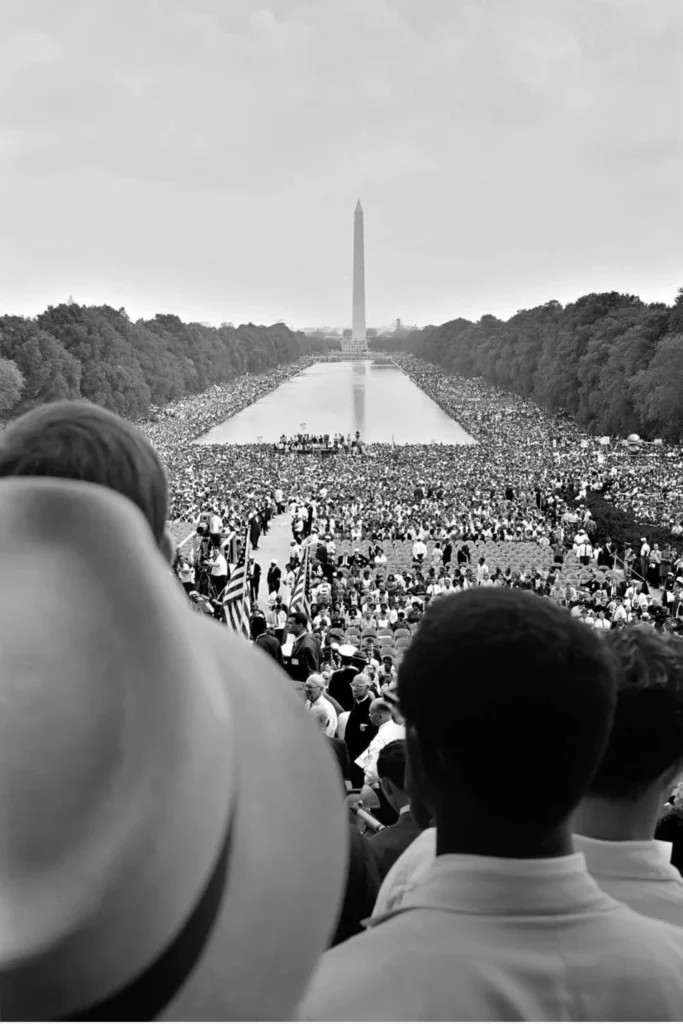
Films About The Civil Rights Movement And Racial Justice
The Civil Rights Movement wasn’t just about marches and speeches — it was a generational struggle against systemic oppression, white supremacy, and political violence. These films and documentaries tell the stories of those who risked everything to challenge an unjust system. They show that the fight for freedom was never just about laws — it was about humanity, equality, and truth. And in today’s America, their message feels as urgent as ever.
Selma (2014) – Follows Dr. Martin Luther King Jr. and the 1965 marches from Selma to Montgomery, where activists fought brutal police repression to secure voting rights. A gripping portrait of leadership, courage, and the cost of democracy.
Malcolm X (1992) – Spike Lee’s masterpiece tracing Malcolm X’s transformation from street hustler to global human-rights leader. It’s as much about personal awakening as it is about America’s failure to reckon with racial injustice.
Mississippi Burning (1988) – Based on the real murders of three civil rights workers in 1964 in Mississippi. It’s a powerful look at law enforcement complicity, white terror, and the courage of those who refused to be silenced.
Till (2022) – The story of Emmett Till’s lynching and his mother, Mamie Till-Mobley’s, relentless fight for justice. Her refusal to let the world look away galvanized the modern Civil Rights Movement.
Son of the South (2020) – A true story of a young white Alabamian inspired by Dr. King who joins the Civil Rights Movement, defying his segregationist upbringing. A story of moral courage and transformation in a divided nation.
The Best of Enemies (2019) – The true story of civil rights activist Ann Atwater and Ku Klux Klan leader C.P. Ellis, who were forced to co-chair a 1971 community meeting on school desegregation in North Carolina. What unfolds is a powerful story of change, humanity, and moral awakening. It’s a reminder that real transformation starts when we confront hate face-to-face and choose empathy over fear.
The Butler (2013) – Spanning eight presidencies, this film follows a Black butler who witnesses decades of racial and political change from inside the White House. It connects the personal to the political, illustrating how progress and backlash often unfold in tandem.
Blood Done Sign My Name (2010) – Based on true events in North Carolina, this film tells the story of a Black Vietnam veteran murdered by white supremacists — and the community’s push for justice. It’s a reminder that local acts of resistance often become the spark for national change.
Eyes on the Prize (1987) – The definitive documentary series on the Civil Rights Movement, capturing the movement’s triumphs, tragedies, and tireless organizing. Essential viewing for understanding how change is made — and how fragile progress can be.
13th (2016) – Ava DuVernay’s documentary exposing how the legacy of slavery evolved into mass incarceration. It’s a modern continuation of the Civil Rights struggle — a devastating portrait of systemic racism repackaged through law and order politics.
Amend: The Fight for America (2021) – Explores the 14th Amendment and its role in defining citizenship, equality, and justice in America. It connects the dots between abolition, civil rights, and today’s battles over democracy and identity.
Stamped from the Beginning (2023) – Traces the deep roots of anti-Black racism in America, based on Ibram X. Kendi’s award-winning book. It’s essential for understanding how centuries-old narratives continue to shape today’s politics and culture.
Mini Film Guide: Civil Rights, Resistance & Redemption
These films capture the courage, struggle, and moral urgency of the Civil Rights Movement. They show how ordinary people stood up against systemic racism and political power, and why that fight for equality and justice is still unfinished today.
If you only have time for a few, start with these:
- Selma (2014) – Marching for democracy under attack.
- Malcolm X (1992) – Revolution through truth and transformation.
- Till (2022) – The mother who forced America to face itself.
- 13th (2016) – How the system reinvented slavery.
- Eyes on the Prize (1987) – The Civil Rights Movement, unfiltered.
Each of these reminds us that progress was never inevitable — it was fought for, defended, and paid for in blood. And as history repeats, they challenge every viewer to decide which side of that struggle they’re on.

Movies About American Politics
From Lincoln’s fight for abolition to modern Trump documentaries, these films about American politics demonstrate how democracy is constantly tested — and sometimes betrayed. They show that the same forces explored in films like ‘The Wave’ — indoctrination, conformity, and propaganda — reappear in American politics through media manipulation and fear-based nationalism.
- 13th (2016) – Connects slavery to mass incarceration, showing how systemic racism still shapes U.S. politics. Directed by Ava DuVernay, it was nominated for the Academy Award for Best Documentary Feature.
- Stamped from the Beginning (Netflix, 2023) – Based on Ibram X. Kendi’s acclaimed book, this documentary traces the history of anti-Black racism — from slavery to today — showing how racist ideas were invented and weaponized to justify oppression. It’s an urgent reminder that prejudice is a political tool, not a natural state.
- Amend: The Fight for America (Netflix, 2021) – Hosted by Will Smith, this docuseries explores the 14th Amendment — the promise of “equal protection under the law” — and how every major American fight for freedom, from abolition to LGBTQ+ rights, is rooted in it. It’s an essential crash course in how democracy evolves and how equality must be constantly defended.
- Immigration Nation (Netflix, 2020) – A raw, unflinching look at U.S. immigration enforcement under Trump. Through ICE raids, detentions, and personal stories, it reveals how policy turns into trauma — and how fear and dehumanization fuel authoritarian power.
- Power (Netflix, 2024) – A deep dive into U.S. policing — its militarization, racial bias, and role as a tool of state control. It reveals how “law and order” rhetoric has long been used to preserve hierarchy, not justice. Timely and uncomfortable, especially in the context of modern authoritarianism.
- The Agenda: Their Vision, Your Future exposes the architects behind Project 2025 and their plan to reshape the United States into a theocratic, authoritarian state. But this film isn’t just about America—it’s a warning to the world. The same billionaire networks, Christian nationalist movements, and far-right think tanks are influencing politics across democracies, from Canada to Europe. With meticulous research and chilling clarity, it shows how democracy can be dismantled through bureaucracy, not bullets. A must-watch for anyone who still believes “it couldn’t happen here.”
- Eyes on the Prize (1987) – The Civil Rights Movement in detail, a reminder of how fragile progress is. This Emmy-winning PBS series is still one of the most definitive accounts of the civil rights struggle.
- Lincoln (2012) – A look at abolition and how democracy is always contested.
- Oppenheimer (2023) – Beyond nuclear weapons, it reveals the dangers of unchecked state power and secrecy.
- JFK (1991) – Explores conspiracy, secrecy, and political violence inside America’s highest offices.
- The Kennedys (2011, miniseries) – A dramatized but deeply revealing look at the political dynasty that defined a generation. It explores how ambition, image, and power intertwine in American politics — from war heroism and moral idealism to backroom deals and personal tragedy. It’s a reminder that charisma and corruption often coexist, and that “American royalty” isn’t immune to the same forces of manipulation and control shaping politics today.
- All the President’s Men (1976) – Watergate and the power of investigative journalism to uncover corruption. Starring Robert Redford and Dustin Hoffman, and directed by Alan J.Pakula, it won four Academy Awards and is still considered the gold standard for political thrillers.
- The Post (2017) – The Pentagon Papers and the fight for press freedom against a hostile White House.
- The Plot Against America (2020, HBO miniseries) – An alternate history where a populist president pushes America toward fascism. Feels uncomfortably real.
Mini Film Guide: Race, Power, and Authoritarianism in America
America’s struggle with racism, inequality, and power isn’t just social — it’s political. These documentaries and films reveal how systems of control, from slavery to policing, evolved to protect power while undermining freedom. Watch them together and the throughline becomes clear: authoritarianism thrives on hierarchy and fear.
Watch first:
- – 13th (2016) — How slavery’s legacy lives on through mass incarceration.
- – Stamped from the Beginning (2023) — The origins and endurance of anti-Black ideology.
- – Amend: The Fight for America (2021) — The 14th Amendment and the ongoing fight for equality.
- – Immigration Nation (2020) — Inside ICE, detention, and the human cost of fear-based politics.
- – Power (2024) — Modern policing as a tool of control, not justice.
- – Ordinary Men: The Forgotten Holocaust (2024) — How ordinary people become instruments of atrocity.
- – The Devil All the Time (2020) — A dark portrait of faith, violence, and corruption in small-town America.
Together, they expose the machinery behind oppression — from fascist Europe to modern America — and remind us that resisting injustice has always been the heart of democracy.
Trump Documentaries
- The Apprentice (2024) – A bold portrait of young Trump and his mentorship under Roy Cohn. Shows how power, media, and impunity were baked into his playbook from the start.
- Unprecedented (2022, docuseries) – Inside-access footage of Trump and his family after the 2020 election. Unfiltered material that reveals plenty.
- Active Measures (2018) – This explosive investigative film connects decades of Russian political influence to Donald Trump’s rise and the global spread of disinformation. It will show you how Russia’s information warfare and the Trump orbit—money trails, kompromat, and modern propaganda all braided together and moved disinformation from Moscow to MAGA for Trump and the Republican Party. Featuring intelligence experts and former diplomats, Active Measures is a must watch on how cyberwarfare, propaganda, and corruption are the modern tools of authoritarian power.
- The Last Republican (2025) – This film bridges Trump’s chaos with the few principled conservatives who broke from him. Produced by Adam Kinzinger and MeidasTouch, it is a sober, deeply personal look at what it costs to stand up to authoritarianism from within your own party. Kinzinger retraces the transformation of the GOP from Reagan’s party to Trump’s cult of personality, offering insider insight into how fear, ambition, and disinformation hollowed out American conservatism. It’s an urgent lesson in how democracies crumble when good people stay silent.
- Get Me Roger Stone (2017) – A history of dirty-trick politics and how it paved the way for Trump’s rise.
- Trump: An American Dream (2017) – Decades of brand-building, tabloid headlines, and political ambition. A long arc to today’s politics.
- You’ve Been Trumped (2011) & …Too (2016) – Locals in Scotland fight Trump’s golf projects. A ground-level look at his business tactics.
- Four Hours at the Capitol (2021) – A sober timeline of January 6 that puts facts first, essential for understanding how quickly democracy can be tested.
- Game Change (2012) – Sarah Palin’s rise as a populist figure, foreshadowing today’s MAGA movement.
International Crime Documentaries
- Jeffrey Epstein: Filthy Rich (Netflix) – This documentary presents a detailed account of how Epstein used his wealth, influence, and power to carry out abuses against 100’s of young women – and those who enabled him. It includes stories from some of the survivors as well. I highly recommend watching this, whether you are in America or not. It is difficult to watch, though.
- Ghislaine Maxwell: Filthy Rich (Netflix) – This documentary, made two years after the Epstein Filthy Rich series, focuses on Ghislaine Maxwell.
- Mogilevich: The World’s Most Dangerous Mob Boss (BBC, CNN documentaries) – On Semion Mogilevich, the Russian crime boss tied to global money laundering, oligarchs, and Trump’s orbit. A reminder that authoritarian leaders rarely operate alone — they often rely on international crime networks. As there is an active international organized crime investigation ongoing that involves a lot of familiar people, this is a must-watch.

Movies About Political Corruption, Power, and American Crime
Authoritarianism thrives when powerful corporations, wealthy elites, and corrupt systems put profit and control above people. Corruption carried out by elites, large companies, and political institutions shapes not just laws and politics, but also people’s lives in significant ways. These movies show how ordinary people can still fight back – and that fighting back matters, even when the odds look impossible.
Whistleblowing And Truth Suppression
- The Empire Files (2015–Present) – Hosted by journalist Abby Martin, The Empire Files is an independent investigative series that examines U.S. foreign policy, corporate power, and the global consequences of imperialism. Each episode unpacks complex issues mainstream media often ignore, offering sharp, fact-based reporting on militarism, inequality, and the propaganda that fuels both.
- Erin Brockovich (2000) – One of my favorite movies of all time tells the true story of Erin Brockovich (played by Julia Roberts) as the legal assistant who took on a giant utility company for poisoning a community. It’s proof that one very determined person can take down a corporate giant.
- Dark Waters (2019) – This is a modern-day David vs. Goliath fight against a chemical company that was knowingly poisoning communities with Teflon. Mark Ruffalo stars as the real attorney who exposed DuPont’s toxic chemical scandal.
- A Civil Action (1998) – A great movie telling the story of a lawyer (played by John Travolta) who sued corporations for polluting a town’s water supply.
- The Insider (1999) – This is the real-life story of the tobacco whistleblower who exposed industry-wide corruption. Starring Russell Crowe and Al Pacino, it tells a tale of truth versus corporate power. This is particularly apt right now with the brave whistleblowers who have been coming forward.
- A Few Good Men (1992) – A courtroom drama that cuts to the heart of obedience, morality, and abuse of power within institutions meant to protect justice. When a young Marine’s death exposes a cover-up inside the U.S. military, one lawyer risks his career to confront the chain of command. It’s a sharp reminder that authoritarianism doesn’t always wear a dictator’s face — sometimes it hides behind “orders.”
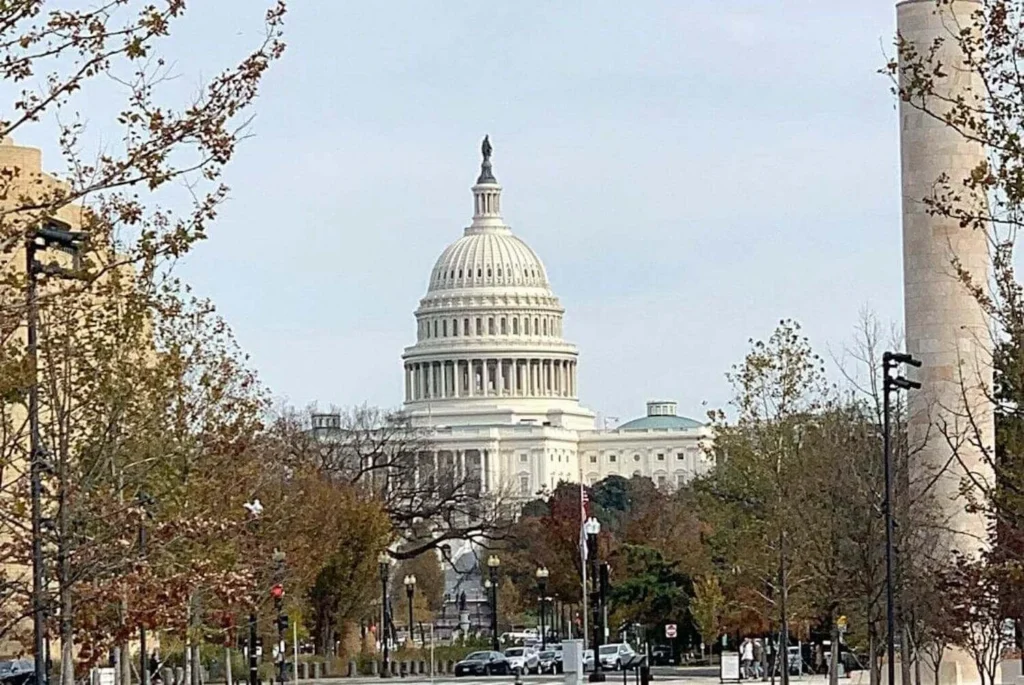
Political Ambition And Moral Collapse
- The Ides of March (2011) – Starring George Clooney and Ryan Gosling, this sharp political drama exposes how ambition, loyalty, and moral compromise collide in the race for power. Behind every campaign speech lies manipulation, corruption, and quiet betrayal — the same dynamics that thrive in today’s political landscape. It’s a sobering look at how idealism dies when power becomes the only goal, and how democracies crumble not through coups, but through compromise.
- Fahrenheit 9/11 (2004) – Michael Moore’s searing documentary on the Bush administration’s response to 9/11, the Iraq War, and the corporate-political machinery that profited from fear. It exposes how propaganda, nationalism, and media manipulation were used to justify endless war — setting the stage for the authoritarian politics that followed.
- All the King’s Men (1949 / 2006) – An ambitious populist rises to power by railing against elites, only to become authoritarian himself. A timeless warning about how corruption hides behind “for the people” slogans. The original film won three Oscars, including Best Picture, and its story feels strikingly familiar in today’s politics of personality and resentment. Watching it today feels less like a period drama and more like a political prophecy — the same populist rage, disinformation, and false promises that built Willie Stark’s empire now fuel the modern authoritarian movement in America.
- The Manchurian Candidate (1962 / 2004) – A decorated soldier is brainwashed into becoming a political assassin. Both versions of this Cold War classic explore how fear and manipulation can turn democracy into a weapon — a warning that’s disturbingly relevant in the age of disinformation and foreign influence. Echoes concerns about Trump’s ties to Russia and billionaire backers.
- Mr. Smith Goes to Washington (1939) – A populist senator fights corruption. Still resonates in an era where billionaires fund GOP politics.
- Chinatown (1974) – Greed and corruption infect every institution — a warning about how power structures protect themselves.
- The Devil All the Time (2020) – A Southern Gothic thriller exposing how faith, power, and violence intertwine in rural America. Set in the postwar South, it’s a haunting parable of hypocrisy and corruption — the kind of moral decay that breeds authoritarian followers.

Greed And Corporate Control
- Wall Street (1987) – “Greed is good.” This classic film, if you’ve never watched it, nails the culture of money and corruption. Still relevant in today’s billionaire-driven politics.
- The Wolf of Wall Street (2013) – Leonardo DiCaprio as Jordan Belfort, the real-life stockbroker who scammed investors and lived in excess.
- The Big Short (2015) – This dramatization of real events shows how greed caused the financial collapse. It exposes how Wall Street greed triggered the global financial crisis. This is important for understanding how corruption impacts everyday people.
- Margin Call (2011) – This is a look inside a financial firm during the 2008 crash. It shows how systemic corruption hides behind polished boardrooms.
- Michael Clayton (2007) – Tells the tale of a corporate “fixer” (George Clooney) who gets caught in the middle of corruption and conscience.
- The Rainmaker (1997) – Based on John Grisham’s novel, a young attorney (Matt Damon) takes on an insurance company that is denying life-saving treatment. Not environmental, but a classic courtroom drama about corporate greed crushing individuals, and very relevant to today.
- The Pelican Brief (1993) – Another Grisham adaptation, this is a great thriller about a law student (Julia Roberts) who uncovers a conspiracy between the government and big oil. It’s sharp on corruption and power, and very relevant to Trump’s regime and big oil today.
Mini Film Guide: Power, Corruption, and the Cost of Obedience
Every authoritarian system relies on three things — corruption, complicity, and silence. These films expose how power hides its crimes, how systems protect the powerful, and how truth only survives because ordinary people refuse to look away.
Watch first:
- Erin Brockovich (2000) — One woman versus an empire of lies.
- The Insider (1999) — Whistleblowing against corporate giants and captured institutions.
- The Ides of March (2011) — How ambition turns democracy into theatre.
- All the King’s Men (1949 / 2006) — Populism’s seductive path to tyranny.
- The Big Short (2015) — Greed as policy, corruption as normal.
- A Few Good Men (1992) — The danger of blind obedience and moral cowardice within power structures.
- The Pelican Brief (1993) – Shows how governments and powerful industries like big oil conspire behind closed doors.
Together, they map the anatomy of corruption — how it spreads, who profits, and why fighting it always carries a cost. But they also remind us that resistance begins when someone finally says, “No more.”

Movies That Predicted Today’s America
History doesn’t repeat – it rhymes. Many films once seen as satire or dystopian fiction now feel uncomfortably like documentaries of the present and near future.
Films About Fascism
- 1984 (1984) – Big Brother rewrites truth and history. Feels like today’s book bans and classroom censorship. Starring John Hurt and Richard Burton and directed by Michael Radford, it remains the definitive adaptation of Orwell’s warning.
- Cabaret (1972) – Set in Weimar Germany, showing how fascism grows while everyday life continues. A reminder of the danger of ignoring warning signs.
- Coriolanus (2011) – Ralph Fiennes directs and stars in this modern adaptation of a Shakespeare tragedy: A war hero turns populist tyrant as nationalism and propaganda erode democracy. Set in a militarized republic, it mirrors today’s volatile politics. A charismatic leader weaponizing resentment against “the people” feels hauntingly familiar in the age of authoritarian strongmen, from Trump’s America to rising far-right movements across Europe.
- V for Vendetta (2005) – A government rules through fear, propaganda, and religion. Echoes of Project 2025 and GOP attempts to control press and speech. Based on the graphic novel by Alan Moore, it has become a cultural touchstone for protest movements worldwide.
TV Series About Authoritarianism And Fascism
- The Man in the High Castle (2015–2019, Amazon Prime Video) – Based on Philip K. Dick’s novel, this chilling alternate history imagines a world where the Axis powers won WWII and divided the United States between Nazi Germany and Imperial Japan. It explores surveillance, propaganda, and the quiet normalization of fascism — and how resistance begins in whispers. Watching it today feels eerily like looking at what an unchecked authoritarian regime could turn America into.
- The Plot Against America (2020, HBO) – Based on Philip Roth’s novel, this miniseries envisions a populist U.S. president sympathetic to fascism and hostile to minorities. The parallels to modern American politics are unmistakable: disinformation, nationalism, and the slow corrosion of democratic norms. A powerful reminder that authoritarianism doesn’t arrive with marching boots — it seeps in through elections, fear, and silence.
Inequality And Resistance
- District 9 (2009) – Aliens are segregated in South Africa, a clear allegory for apartheid, racism, and immigration policy. A metaphor for how authoritarian systems dehumanize outsiders.
- Parasite (2019) – A poor family infiltrates a wealthy household. A dark, witty critique of class inequality and how capitalism breeds exploitation. Relevant to widening U.S. wealth gaps.
- Metropolis (1927) – A silent-era classic about a futuristic city divided between wealthy elites and oppressed workers. Nearly a century old, but still a timeless allegory for inequality and authoritarian control.
- Her (2013) – A lonely man falls in love with an AI. While tender, it’s a sharp critique of isolation, tech dependence, and the commodification of intimacy.

Movies About Propaganda, Media Manipulation, And Control
- Network (1976) – A TV anchor has a breakdown on air, which the network then exploits for its ratings. It accurately predicted how corporate media would evolve into an outrage-driven, profits-first propaganda machine exactly like we are seeing today. Corporate media is manipulating viewers through outrage and propaganda. This is the exact playbook that Fox has perfected.
- Thank You for Smoking (2005) – A satirical look at a tobacco lobbyist who spins truth to protect corporations. A sharp reminder of how industries manipulate narratives, much like today’s fossil fuel and political lobbies.
- The Stepford Wives (1975 / 2004) – A suburban community where women are turned into obedient robots. A biting allegory for patriarchy, conformity, and the erasure of women’s autonomy — themes echoed in Christian nationalist policies today.
- A Face in the Crowd (1957) – A drifter turned TV personality becomes a dangerous demagogue. One of the earliest critiques of media power creating authoritarian populists. Feels like a blueprint for Trump and modern media politics. Directed by Elia Kazan, it has become essential for understanding media and politics.
- The Truman Show (1998) – A man discovers his entire life is a TV show. Raises questions about surveillance, consent, and media manipulation — eerily prescient in the age of reality TV and social media. It was nominated for three Academy Awards, including Best Director for Peter Weir.
- Don’t Look Up (2021) – A satire on climate change denial and political corruption, where leaders ignore scientists about an impending comet. A perfect critique of disinformation and populist politics.
- The Social Dilemma (2020) – Ex-tech insiders reveal how social media exploits psychology to control behavior and fuel division. Crucial for understanding propaganda and manipulation today. After it premiered at Sundance, it became one of Netflix’s most-watched documentaries on release.
- The Great Hack (2019) – A chilling look at the Cambridge Analytica scandal, this documentary exposes how data from millions of social media users was harvested and exploited to manipulate political behavior worldwide. It shows how data minining, psychological profiling, digital advertising and targeted disinformation were used to undermine democracy by substantially influencing elections. It shows how our clicks become political weapons, and proves that in the digital age, propaganda is personalized and democracy is hackable.
- A Thousand Cuts (2020) – Following Nobel Peace Prize-winning journalist Maria Ressa, this powerful documentary shows the dangerous intersection of authoritarianism, social media manipulation, and press freedom. Set in the Philippines but resonating globally, it’s a reminder of how truth itself becomes a target when propaganda rules.
TV Shows About Propaganda, Media, And Manipulation
- The Newsroom (2012–2014) – Focuses on journalistic integrity amid political propaganda and misinformation.
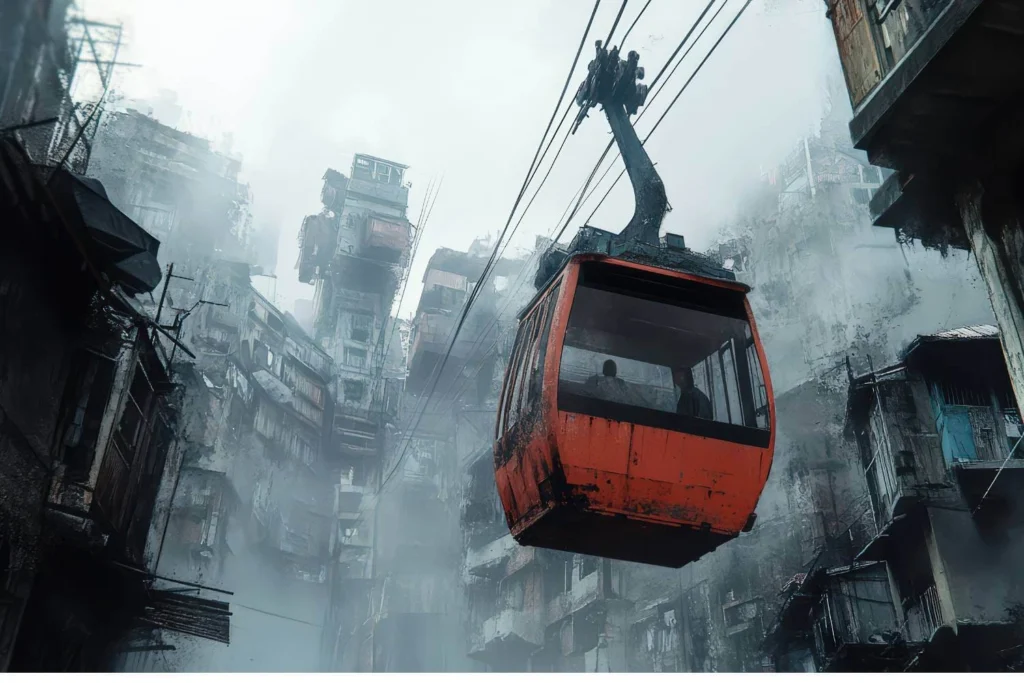
Dystopian Movies About Authoritarianism & Surveillance States That Feel Like Now
Films like ‘The Wave’ prove that dystopian control doesn’t start with robots or rulers — it starts with people trading freedom for belonging. What once felt far-fetched now plays like case studies of the present: dark money, unchecked power, tech going unchallenged.
Dystopian Movies About Authoritarianism
Films about power, control, conformity, and political repression.
- Children of Men (2006) – Humanity faces extinction due to mass infertility, and authoritarian governments weaponize fear. A stark allegory for how regimes exploit crisis and immigration to retain control.
- Idiocracy (2006) – Once a comedy, now a prophecy. Celebrity politicians, anti-intellectualism, and the collapse of education.
- Brazil (1985) – A dark satire on endless bureaucracy, surveillance, and authoritarian control. A prophetic nightmare vision that’s far too recognizable in an age of state control and corporate dominance.
- They Live (1988) – Elites control the public through propaganda and consumerism. A cult classic that feels like a modern American story.
- Civil War (2024) – A near-future America fractured by dictatorship, propaganda, and militarized nationalism. Through the eyes of journalists crossing the war-torn country, it shows how authoritarianism, division, and disinformation can turn democracy into civil collapse. It’s a chilling, realistic warning of what happens when truth dies and loyalty replaces law.
- The Hunger Games (2012–2015) – A society divided into districts, ruled by fear and spectacle; President Snow pitting them against each other. With Trump sending Texas troops into Chicago and California troops into Portland, Trump is pitting Americans against each other in a real-life Hunger Games in an effort to distract from the criminality of the Capitol. When we watch The Hunger Games, there isn’t any doubt who the villains are; no one watches President Snow and thinks “what a good guy cleaning up the Districts so that people can eat in the Capitol again or “glad those Antifa guys opposing him are being dealt with”. Yet in real life, the White House wants you to believe that rooting for the Capitol to quash dissent and use its power to invade the cities is just and noble and definitely not the plot of a movie franchise. This movie is also chillingly relevant to wealth inequality and authoritarian governments in using propaganda to distract and divide. A country divided into Districts is also what Peter Thiel, Elon Musk, and the other tech Billionaires have planned, with each Billionaire ruling over a district/section of America. Trump has looked at giving Thiel Washington, DC, as an example.
- The Divergent Series (2014–2016) – Young people resisting a rigidly controlled, faction-based society. A clear metaphor for authoritarian systems built on conformity.
- Equilibrium – A man (Christian Bale) rediscovers his humanity (grief, love, and ultimately defiance). His awakening becomes rebellion, demonstrating how emotion drives freedom, not suppression. A society where the people have been dulled into numb compliance is much easier to control, but human connection-emotional, messy, inconvenient, is the antidote to oppression – and the very thing that rulers fear the most. This movie is a must-watch today because it enraptures the creeping way that freedom gets accepted by people.
TV Shows About Authoritarianism And State Control
While films have long warned us about the rise of authoritarianism, television is just as powerful in showing how control, propaganda, and surveillance seep into everyday life, society, and culture — where truth is manufactured and freedom feels optional.
These TV series show what it’s like to live under regimes where truth is manufactured and freedom feels optional.
- The Handmaid’s Tale (2017–present) – Its dystopian theocracy mirrors Christian nationalist goals, echoing Project 2025 and religious authoritarianism.
- Black Mirror (2011–present) – A modern anthology exploring the dark consequences of surveillance, social media, and technology-fueled control. Episodes like Nosedive, Hated in the Nation, and Men Against Fire are particularly relevant to propaganda, dehumanization, and authoritarian tech.
Mini Film Guide: Modern Warnings
These recent films don’t imagine the future — they reflect the present.
Each one exposes a different face of modern authoritarianism: disinformation, climate denial, censorship, and division.Watch with intent:
- Civil War (2024) — Journalists document America’s collapse under dictatorship and propaganda.
- Don’t Look Up (2021) — Climate crisis meets corruption and distraction in a media-obsessed world.
- The Social Dilemma (2020) — Tech manipulation as modern mind control.
- The Great Hack (2019) — Data mining, disinformation, and democracy for sale.
- V for Vendetta (2005) — Fear and faith weaponized by the state.
These films are warnings, not predictions — reminders that democracy erodes first through apathy, distraction, and disinformation before it ever falls to violence.

Surveillance State / Technology / AI Movies
Films about tech dominance, AI, or corporate surveillance as tools of control.
- Minority Report (2002) – In a world where people are arrested for crimes they haven’t yet committed, the film questions surveillance, predictive policing, and state control. Relevant today as governments push for AI-driven policing and surveillance.
- Gattaca (1997) – A society where genetics determines your worth. A chilling parallel to eugenics, inequality, and tech companies shaping futures based on data.
- Ready Player One (2018) – A future where people escape into virtual reality while corporations tighten control over society. Relevant as tech billionaires push AI, VR, and metaverse worlds as “solutions” while ignoring inequality.
- Snowden (2016) – Based on the true story of Edward Snowden, who exposed NSA surveillance. A modern tale of government overreach, whistleblowing, and the cost of truth-telling.
- Citizenfour (2014) – Laura Poitras documents Edward Snowden in real time as he reveals the NSA’s mass-surveillance apparatus. It’s a front-row seat to whistleblowing, government overreach, and the personal cost of telling the truth—essential viewing for understanding today’s surveillance state.
- The Matrix (1999) – Reality controlled by an invisible system. A powerful metaphor for media manipulation, surveillance, and breaking free from control.
- RoboCop (1987) – Corporate-controlled law enforcement and militarized streets. ICE and police militarization make it eerily real.
- Blade Runner 2049 (2017) – A visually stunning exploration of artificial humans, corporate dominance, and blurred morality. Reflects today’s debates around AI, human rights, and capitalism without limits.
- Ex Machina (2014) – A tech billionaire tests a humanoid AI. A story about power, exploitation, and the ethics of playing god with technology. Extremely relevant to today’s AI industry and the billionaire influence of Peter Thiel, Elon Musk, and other Silicon Valley elites.
- WALL-E (2008) – A Pixar gem where humanity abandons Earth due to corporate-driven environmental collapse. A warning about consumerism, climate change, and passivity.
- The Hater: When an ambitious young man begins working in the dark world of social media smear tactics, he discovers that his virtual games have very real consequences.
TV Shows About Surveillance State / Technology / AI
Authoritarianism no longer just wears a uniform — it hides in algorithms, cameras, and code. These TV shows explore how technology, surveillance, and AI are reshaping human freedom, exposing how easily power can slip from governments to corporations, and from citizens to machines. They remind us that advanced technology in the hands of people with dangerous agendas quickly turns innovation into control and safety into surveillance and death.
- Battlestar Galactica (2004–2009) – A sci-fi epic about humanity’s remnants fleeing the Cylons — machines they themselves created. Blending AI rebellion, military rule, and moral ambiguity, it questions what happens when survival justifies authoritarian control. It also explores faith, identity, and the ethics of artificial life — themes that feel eerily current in today’s debates on AI autonomy, defense technology, and political extremism.
- Westworld (2016–2022) – Blurs the line between artificial life and human corruption. As robots gain consciousness, the series exposes how power, exploitation, and surveillance shape freedom — an allegory for tech billionaires and control economies.
- Person of Interest (2011–2016) – A crime procedural wrapped around mass surveillance. A secret AI system monitors everyone, predicting crimes before they happen — a perfect parallel to modern predictive policing and state data collection.
- Mr. Robot (2015–2019) – A hacker-driven psychological thriller about fighting corrupt corporations and surveillance states. It dives deep into disillusionment, rebellion, and how tech control blurs truth and resistance.
Together, these dystopian films and TV series show that control doesn’t need to come from governments alone — it can be built in servers, screens, and systems we use every day. As AI, predictive policing, and mass data collection accelerate, these stories feel less like cautionary tales and more like headlines. Watch them not for escapism, but for understanding — because dystopia rarely arrives all at once. It arrives quietly, while we’re scrolling.
Mini FILM Guide: Films That Predicted the Age of Surveillance
Long before AI and social media, these films saw it coming: the trade of privacy for convenience, control for comfort, and freedom for safety.
Watch first:
- Minority Report (2002) — Predictive policing and pre-crime control.
- The Matrix (1999) — Reality rewritten by unseen systems.
- Ex Machina (2014) — Tech billionaires playing god.
- Mr. Robot (2015–2019) — Hacking as modern rebellion.
- The Social Dilemma (2020) — Algorithms as silent dictators.
These films are no longer science fiction — they’re social commentary. They warn us that when we trade privacy for convenience and freedom for security, we’re not protecting democracy — we’re surrendering it.
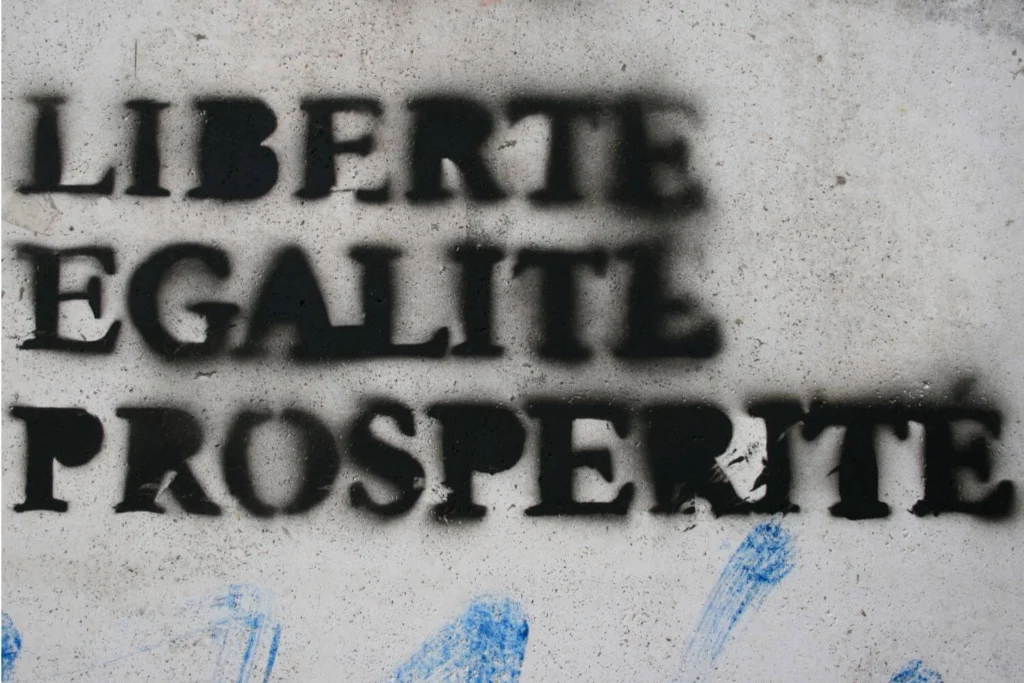
Movies About Revolution And Resistance
When oppression rises, so does resistance. These films show how courage, solidarity, and persistence spark change — from ballots to barricades.
- Les Misérables (2012, musical adaptation) – Set against the backdrop of 19th-century France, it shows students and citizens rising up against tyranny. A story about hope, sacrifice, and the cost of fighting injustice.
- Reds (1981) – Follows American journalist John Reed during the Russian Revolution. It explores the passion and chaos of revolutionary movements, and the risks of challenging entrenched power.
- Matewan (1987) – A story of coal miners in West Virginia standing up against ruthless corporations. A reminder that labor rights were won through struggle.
- The Wind That Shakes the Barley (2006) – Irish rebels fighting for independence. Brutal and poetic, it asks what freedom really costs.
- Viva Zapata! (1952) – Marlon Brando as Mexican revolutionary Emiliano Zapata, showing how revolutions begin with grassroots resistance.
- Les Misérables (2019, French drama) – Not a musical, but a modern-day story set in Paris that echoes revolutionary anger against systemic police brutality.
- Suffragette (2015) – Women in Britain fighting for the right to vote, often through dangerous acts of resistance. A direct link to today’s struggles for rights.
- Milk (2008) – The story of Harvey Milk and the movement for LGBTQ+ rights. A reminder that revolution doesn’t always mean weapons — sometimes it means voices and ballots.
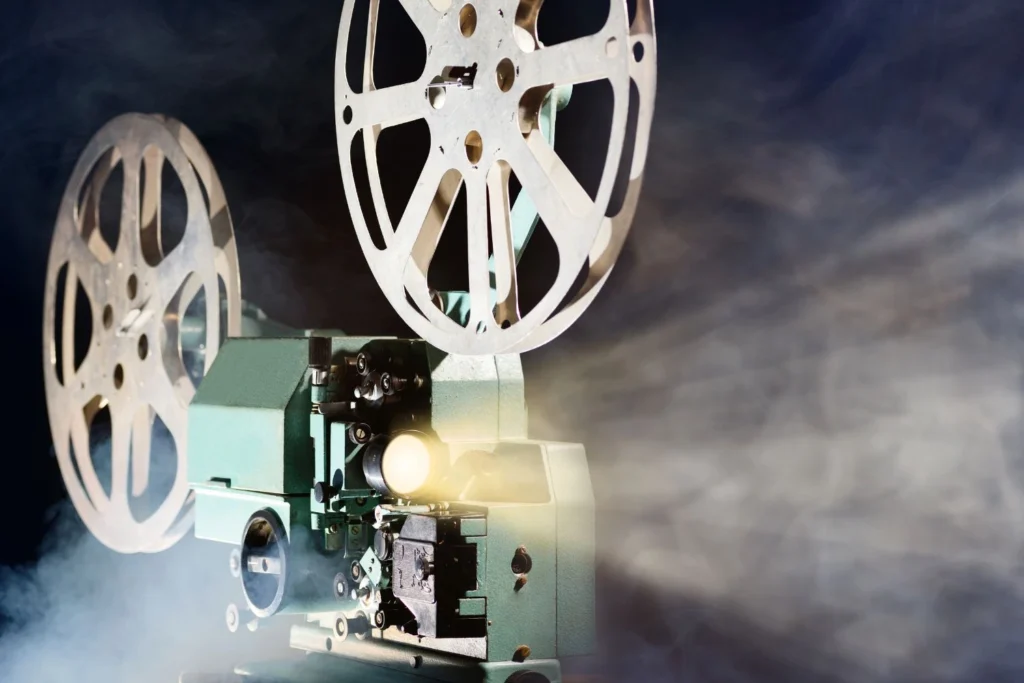
Movies Are Not Just For Entertainment: They Give Us Mirrors & Warnings
History and film tell the same story: authoritarianism always rises the same way, and resistance always matters. Cautionary tales warn of how easily democracies fall step by step, exactly how it has in America, how corruption and crime thrive, and how religion can be weaponized, while the stories of resistance remind us that power can be challenged, systems can be resisted, and democracy is worth defending.
Authoritarianism Can Happen Anywhere
Despite constant warnings from historians and experts for years, many Americans believed “it can’t happen here”. So they did nothing. Now what once looked like fiction or being melodramatic is happening in real time.
History warns us, movies like The Wave remind us, and dystopian movies like ‘The Hunger Games’ caution us: authoritarianism doesn’t need to march in uniform to take over. It always begins in hearts and minds — one small compromise at a time. That’s why stories of fighting back matter. They provide hope, inspiration, and motivation to fight back.
The difference is that this time, the story isn’t unfolding on screen — it’s unfolding in real life.
Learn More About American Politics
- Antifa Explained: Extremism, Myths, And Violence In America
- Independent Media To Follow: Join The Voices Defending Democracy
- The Information War: Lies, Algorithms, and How Disinformation Undermines Democracy
- How To Build A Smarter News Feed And Fight Propaganda
- We’ve Seen This Movie Before: Films That Predicted America’s Authoritarian Turn
- Countering Banned Books In America: Essential Reads On Racism, Religion And Democracy
- Organizations Fighting Trump and The GOP: Advocacy Groups and Watchdogs You Should Support
- Pete Hegseth And The Christian Takeover Of The Pentagon
- Why Christians Think They Should Rule America
- 2024 US Election: How Elon Musk & Republicans Stole It In Plain Sight
- Boycott America: Should I Visit The US During Trump presidency?
Share Me
If you found this post helpful, share it or pin it! It’s one of the best ways to show your support. Thank you!
Gemma Lawrence is a British expat, solo female travel blogger, and the creator of This Brit’s Life — a travel and lifestyle blog that helps women explore the world confidently, live abroad independently, and stay informed about global issues.
Born and raised in England, Gemma has been living in British Columbia, Canada since 2016 and has been traveling solo for over a decade. With a background in journalism and over ten years of experience in digital marketing and communications — including leadership roles with the International Association of Business Communicators (IABC/BC) — she brings both storytelling and strategy to her writing.
Through her posts, Gemma shares practical solo travel advice, expat insights, and confidence-building resources, while also covering broader topics like women’s rights, democracy, and self-care. Her goal is to inspire independence, awareness, and personal growth — one adventure at a time
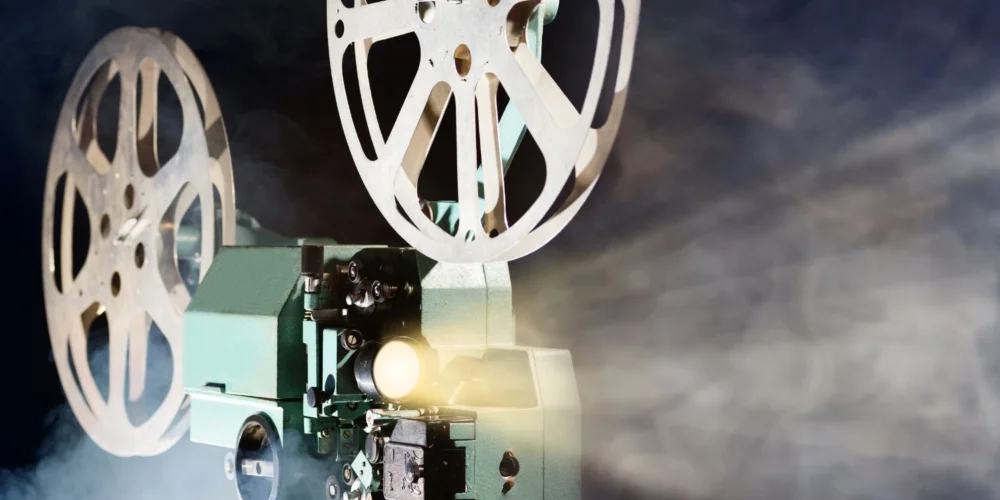


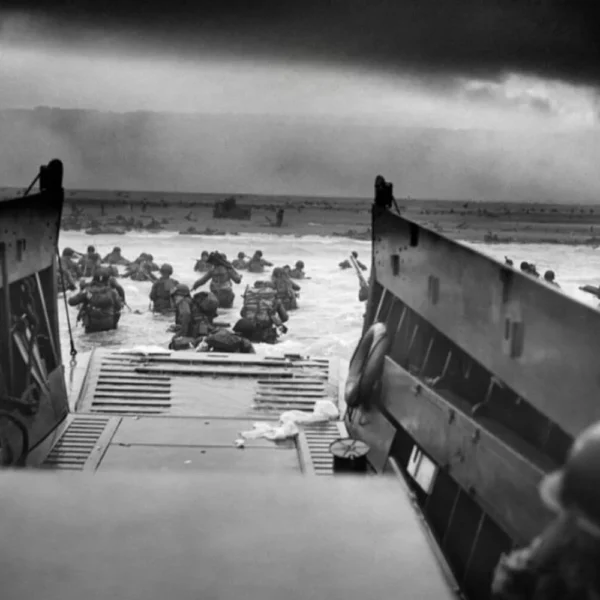
This guide is a treasure trove! From the sheer nerve of The Imitation Game to the hair-raising Bridge on the River Kwai, its like a history lesson with a side of popcorn. Who knew WWII films could be so packed with plot twists and profound insights? The section on Antifa is particularly timely, proving history really does repeat itself – just like that catchy tune you cant get out of your head. And lets be real, the political docuseries section is like a masterclass in modern absurdity. Kudos for pulling all this together!baseball bros unblocked
This is quite the cinematic roadmap! From Dunkirks clever tricks to Ukraines modern stand, its clear that outsmarting tyranny is a timeless theme. Predictably, the guide dives deep into American stories, because why wouldnt you? However, the section on Antifa, meticulously debunking the Trump narrative with historical context, is a breath of sanity in a sea of misinformation. While some films on the list feel like required viewing for a specific political history class, others offer potent warnings about where we might be headed if we dont pay attention. It’s refreshing to see films about resistance and the dangers of authoritarianism get a spotlight, even if it sometimes feels like a well-worn path through cinematic history. Still, a helpful guide for anyone looking to dive into movies that question authority – a skill apparently more needed than ever.quay random
Wow, this is quite the cinematic roadmap! From British ingenuity to American airmen, and tackling modern subjects like Antifa and Christian nationalism, its clear that cinema offers powerful insights into how we fight back against tyranny. While some films feel chillingly relevant (The Plot Against America anyone?), others are just great escapist adventures about resistance. Its amusing how movies about conformity and propaganda can suddenly feel like documentaries, but thats the power of storytelling, right? This guide is like a survival kit for understanding the world today, wrapped up in movie recommendations. Just be prepared for some heavy topics and maybe a sudden urge to start a revolution after watching The Great Dictator. Highly recommended for anyone looking to be entertained and slightly terrified!deltarune the prophecy
This is quite the cinematic guide, mapping everything from WWII resistance to modern American politics with more enthusiasm than a documentary about documentaries! While I appreciate the thorough cataloging of films warning against authoritarianism and the erosion of democracy – from Dont Be a Sucker to The Social Dilemma – it sometimes feels like a reminder that the movie business understands the dangers of unchecked power better than some current players. Its almost as if Hollywood has been shouting fire in the theater while others were worried about the price of concessions. Still, a well-intentioned, if slightly overzealous, effort to keep folks watching closely.watermark ai